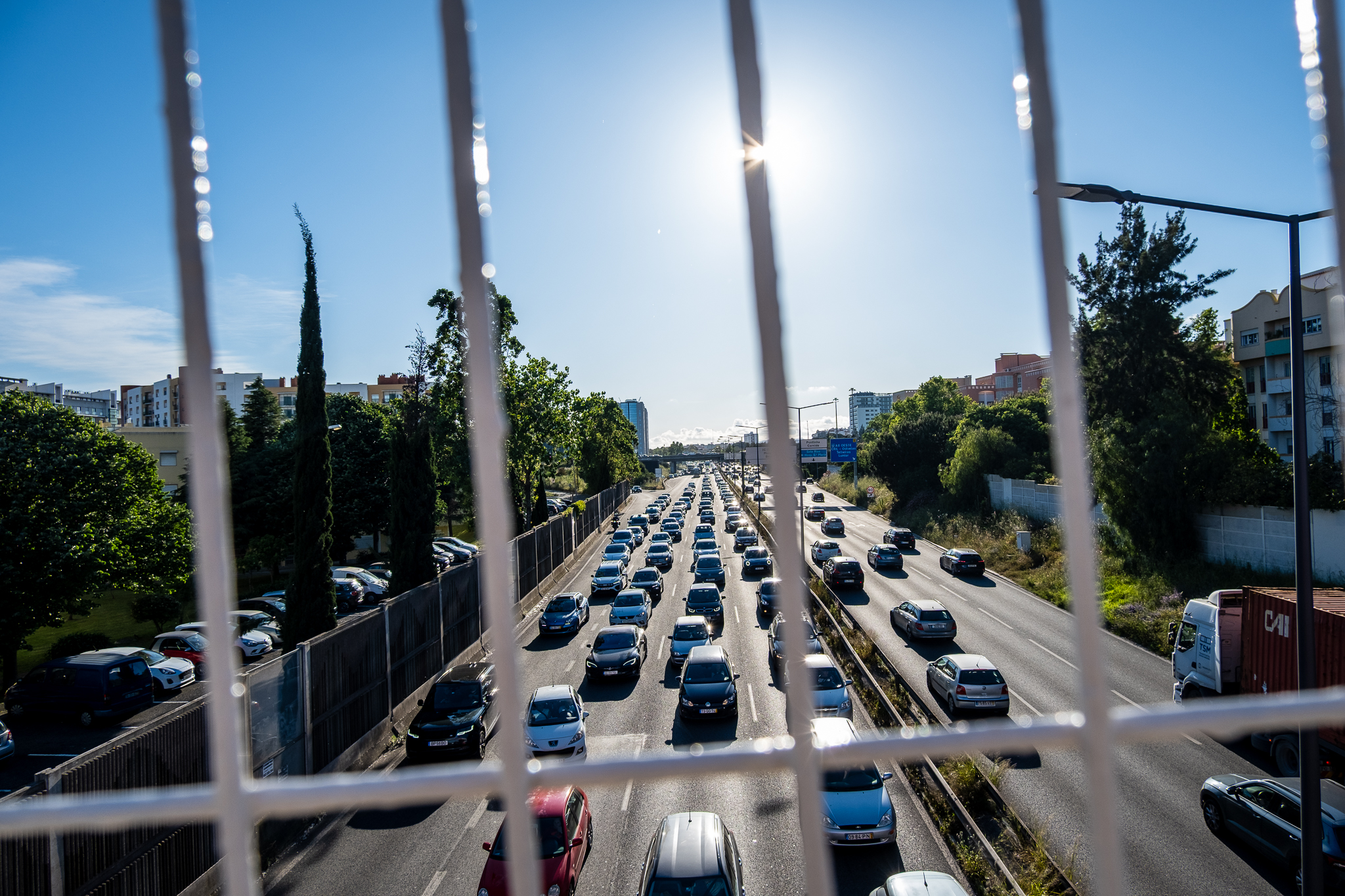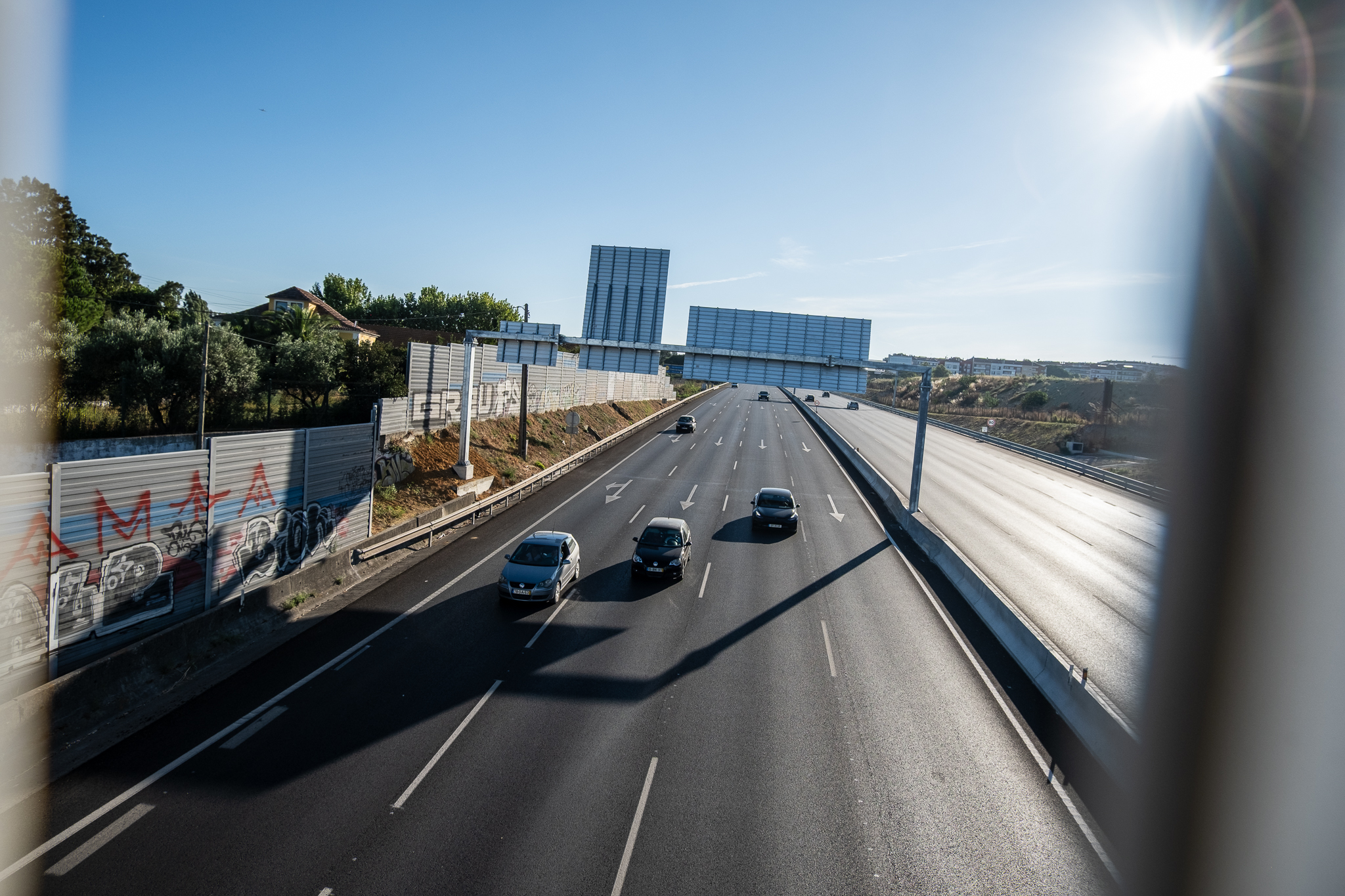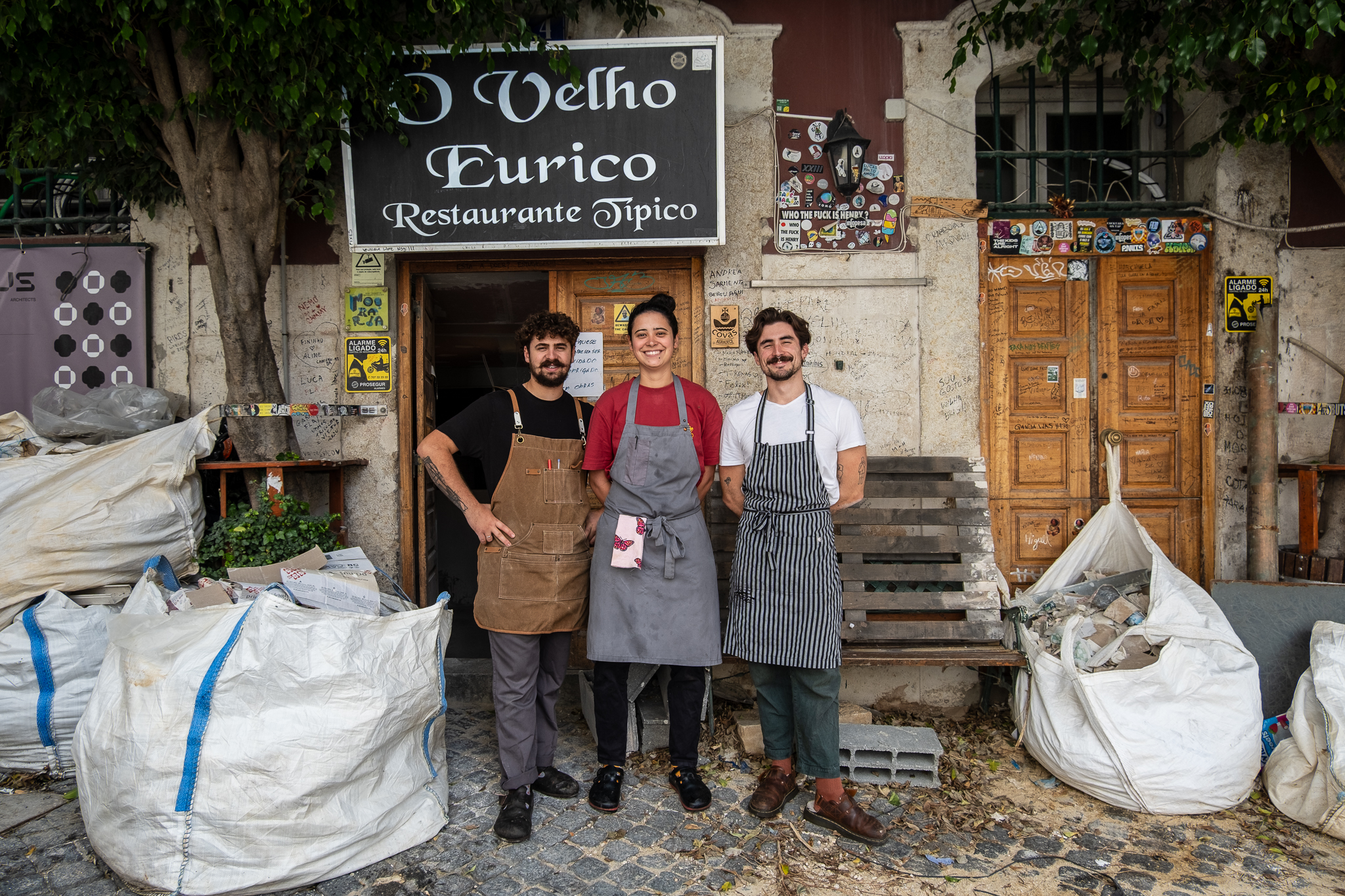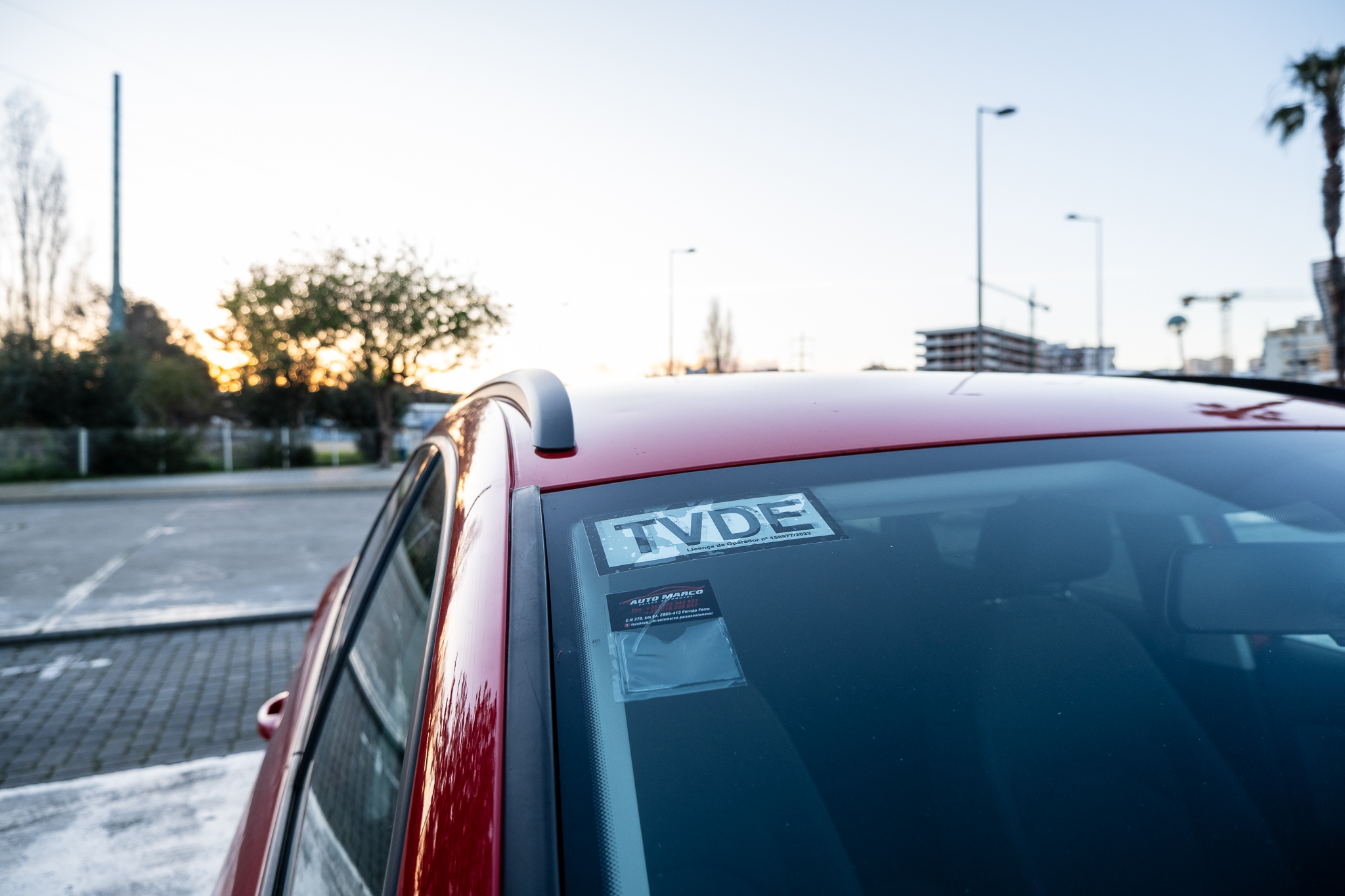Carris Metropolitana was launched on June 1st in five municipalities. But if the first few days were difficult, things didn't get any better in the following days. In the meantime, the Carris Metropolitana service has been suspended: the new, yellow buses will remain but, until the end of the month, the timetables and routes will be those of the old...

On June 1st, officials from Transportes Metropolitanos de Lisboa (TML) and the municipalities affected by the start of operations of Carris Metropolitana (CM) on that day made an intermodal trip between Santa Apolónia in Lisbon and Azeitão in Setúbal - first by subway, then by train and, finally, in one of the new yellow buses that had been allocated specifically for the event. At the same time, the people of Alcochete, Moita, Montijo, Palmela and Setúbal were forced to use a new bus operator which, on that day, was replacing the service provided essentially by TST. Expectations were high (at least, so they had been raised), but it quickly became apparent that the Metropolitan Railway was off to a disastrous start.
The press reports (see this report from Público, this one from the Renaissance or this one from RTP), left no room for doubt: there were too many problems at the start. And, as the days went by, it was realized that these were not just problems of the day of commissioning. This week, several drivers of Carris Metropolitana decided to stop their work claiming lack of conditions to perform their tasks and now the operation of Carris Metropolitana is temporarily suspended: the buses are new but they are doing the old TST schedules and routes. But we'll get to the details in a moment.
After all, what happened? Very briefly:
- the schedules and routes were announced by TML with only one week in advance of the new Carris Metropolitana coming into operation in the first five municipalities (Alcochete, Moita, Montijo, Palmela and Setúbal);
- drivers were not trained to know the new schedules and routes in time for the new Carris Metropolitana to start operating. Last Monday 90% of the planned offer of CM in the region of Setúbal did not take place;
- passengers claimed ignorance of the new schedules, routes and bus numbering. No or little information at bus stops;
- buses in circulation without digital identification, on the vehicle's panels, of the respective line number and destination as it should be;
- Due to the problems, Carris Metropolitana was suspended in practice and the schedules and routes of the previous operator (TST) are in effect until the end of this month of June. Carris Metropolitana's offer will be introduced gradually throughout the month.
In the last few days, the largest Facebook group of passengers of Carris Metropolitana has grown from about five thousand members to more than eight thousand members. Most of the posts are questions, requests for help, complaints and venting.
Who is TML and who is Alsa Todi?
The operation of the Carris Metropolitana (CM) covers the entire Lisbon Metropolitan Area (AML), which was divided into four sub-areas: in each of these operation areas, Carris Metropolitana is ensured by a private company, under concession, according to the international public tender. Transportes Sul do Tejo (TST) will remain in Almada, Seixal and Sesimbra, Rodoviária de Lisboa (RL) in Mafra, Loures, Odivelas and Vila Franca de Xira, and Viação Alvorada - the result of the merger between Vimeca and Scotturb - will continue to operate in Amadora, Oeiras and Sintra.
| Counties | Operator |
|---|---|
| Area 1 Amadora, Oeiras and Sintra + intercity connections to Cascais + connections outside AML (Western Area) | Viação Alvorada |
| Area 2 Mafra, Loures, Odivelas and Vila Franca de Xira | Lisbon Bus Station |
| Area 3 Almada, Seixal and Sesimbra | Transportes Sul do Tejo |
| Area 4 Alcochete, Moita, Montijo, Palmela and Setúbal + intercity connections to Barreiro + connections outside AML (Central Alentejo area) | Alsa Todi |
A Alsa Todi is the only new company operating in AML. It was set up on purpose for the CM service, resulting from a consortium of companies formed by Alsa - the major Spanish long distance road operator (the "Spanish Express Network") - by the Luísa Todi carrier from Setubal and by the Dutch company Transvia.
Alsa Todi won the public tender held for Area 4 of Carris Metropolitana's operation, covering the municipalities of Alcochete, Moita, Montijo, Palmela and Setúbal. It was this Area 4 that started operating last June 1st (the other three Areas will start on July 1st). Area 4 is the smallest of the four Areas and was therefore also chosen for the launch of the CM in pilot format.
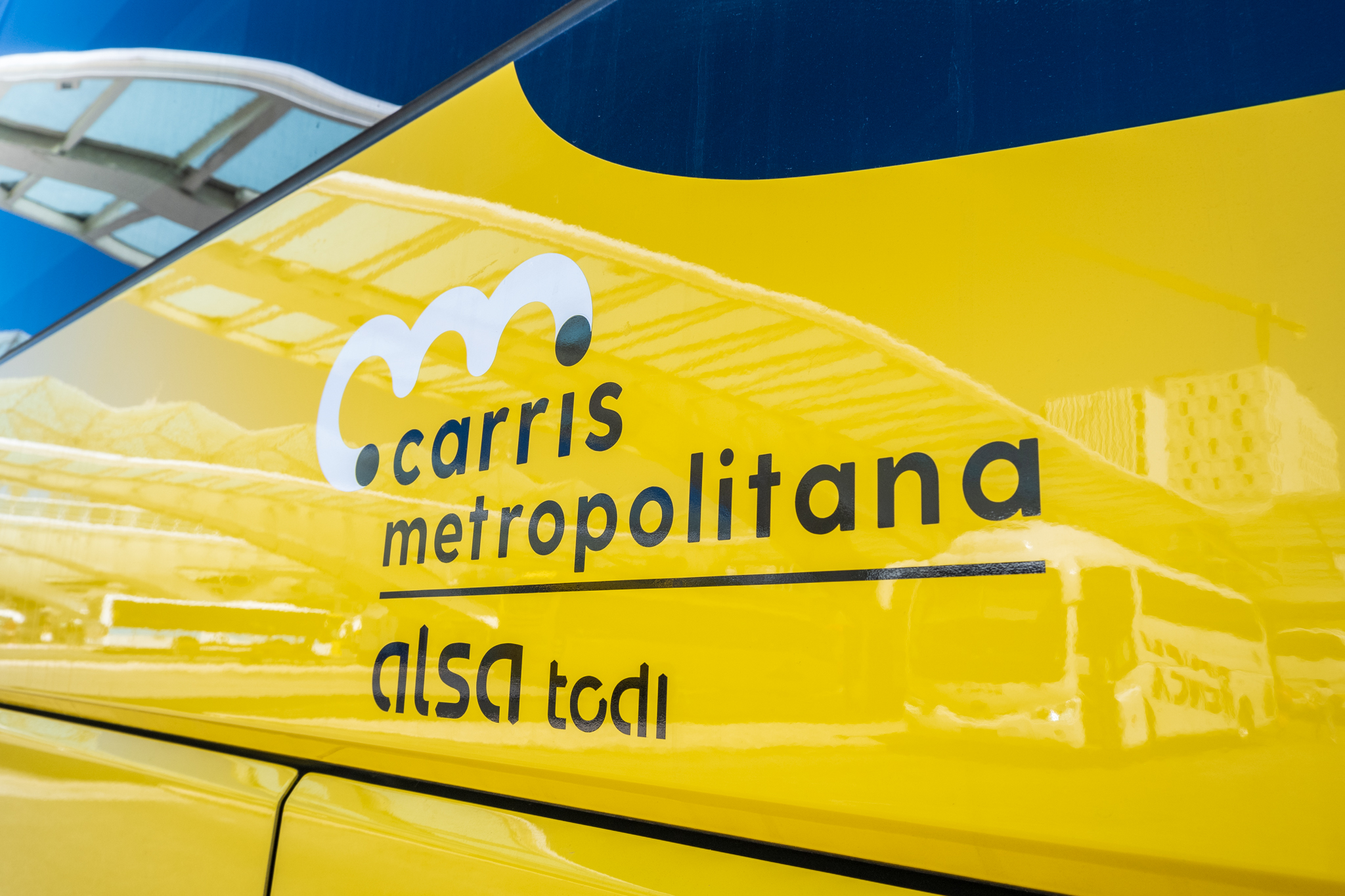
Although TST, RL and Viação Alvorada (through Vimeca and Scotturb) have been operating in AML for dozens of years, what's new is that network, timetable and tariff management becomes a centralized competence of the Lisbon Metropolitan Transports (TML)(i.e., technically the TML is owned by each of the 18 municipalities that make up the AML). Each private operator is limited to providing the service on the ground (in the corresponding Area), using the same brand name for all and the common rules, defined by TML.
TST, RL, Viação Alvorada and also Alsa Todi are paid by the kilometer and for the trips they make - that is, there is a direct financial incentive for providing the public road transport service and it pays for each company to make the trips even if those trips are to pick up two or three passengers on a particular line. In the particular case of Area 4, the Alsa Todi should have an annual income estimated at 24 million euros, since the operation will yield 1.71 euros for each kilometer driven by each vehicle. Carris Metropolitana's service will be monitored in real time and digitally so that TML can verify whether the four operators are complying with the concession contracts, and there are defined penalties for non-compliance - even in terms of timetables.
TML was officially formed in 2021, and will basically manage two things: Carris Metropolitana, on the one hand, and the Navigator, on the other hand. The Navegante is the fare system common to the entire AML and its various public transport operators - road, rail, river and metro.
After all, what failed and who failed?
The first failure was by TML, which disclosed timetables and route details to passengers less than a week in advance of the beginning of the operation of Carris Metropolitana. Several passengers had been using social networks to complain about the lack of detailed information, worried about whether or not the schedules they were used to would be maintained. They wanted to understand what improvements they were going to get and if at least the existing supply was maintained. After all, it is their lives that are at stake - it is that from a Tuesday to a Wednesday, in the middle of a week, the service would move from TST to Carris Metropolitana.
At an event with journalists the week before Carris Metropolitana started operating, TML said that it was still fine-tuning the timetables and that it wanted to make them available only when it had the final version of them. As an example, TML said that only that week it was cross-referencing the schedules of Carris Metropolitana with those of the TTSL ferries.
However, despite the alleged care taken in the preparation of the schedules by TML, on the eve of the launch of the CM, on May 30th, the Municipality of Alcochete denounced on its website and Facebook that, "after careful analysis by the technicians of the Municipality of Alcochete".the published schedules were "incorrect" and that "the offer embodied in them" was "lower than contracted and intended by the municipality". In the same press release, it was stated that "the municipality has already informed Transportes Metropolitanos de Lisboa (TML), which acknowledged the inaccuracies and is working to have them corrected and disclosed as soon as possible"..
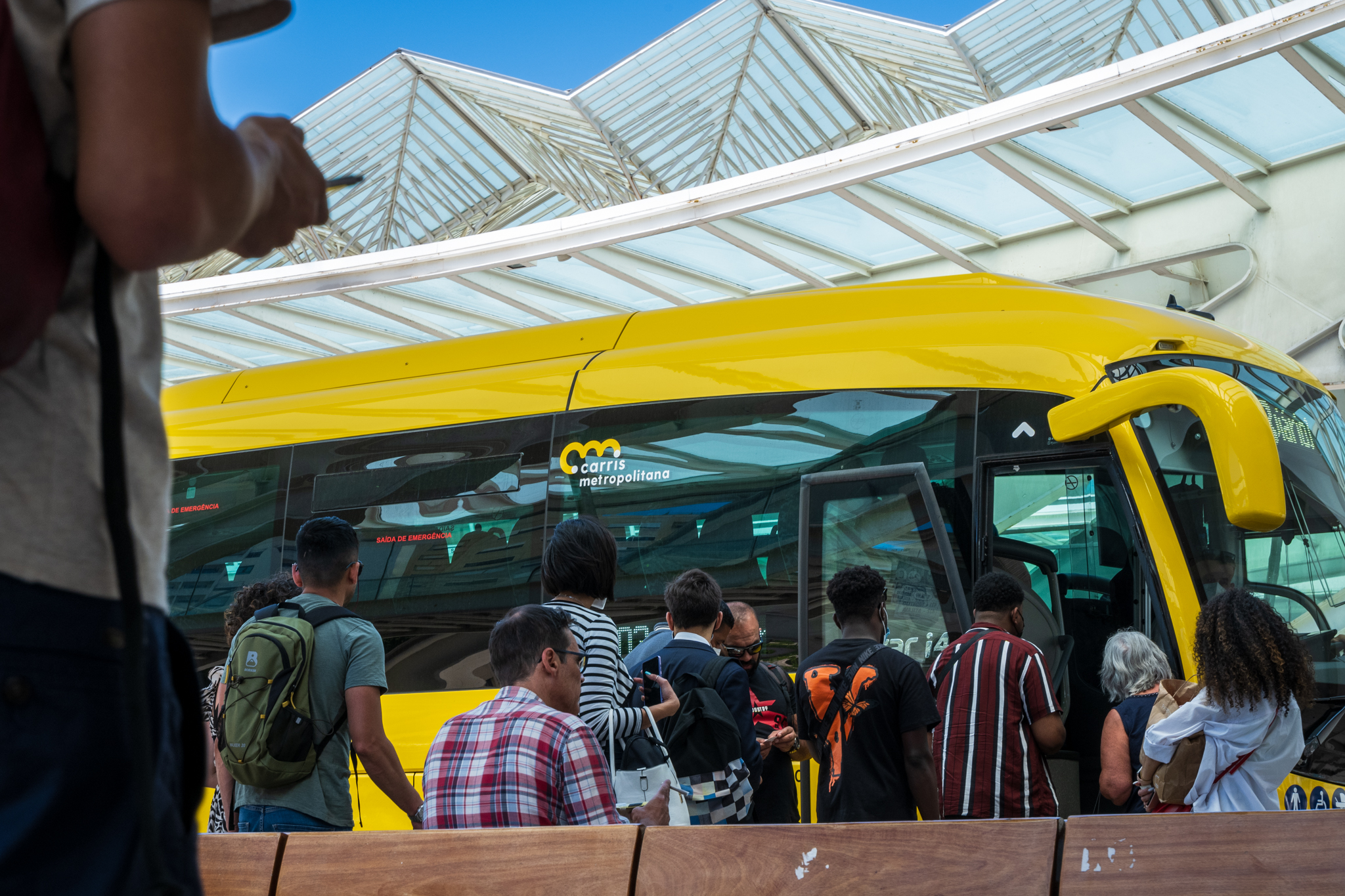
The first day of the CM was chaotic, according to press reports. In the set of reports published on June 1, it was possible to extract the following situations:
- delays on the buses in relation to the new schedules planned;
- poor supply to the demand, with crowded buses and/or buses with fewer seating positions than previously. On long distances, with more than an hour, traveling standing is uncomfortable and on the lines that cross the 25 de Abril/Vasco da Gama Bridge it is not even possible to travel standing for legal reasons;
- drivers with little information about the new service and having difficulty using the new ticket validation machines. Ticketing system malfunctions that took all passengers without a pass to travel for free;
- stops with information from the old service, including the old schedules and the previous numbering. And yellow posts put up for CM without any information, not even of the new lines served by that stop. So people were being led to use the CM service but with outdated information from TST;
- passengers with difficulties in accessing information about the new service, being unaware of the new timetables, lines and numbering, especially for passengers less used to the digital world. TML said that they distributed information on paper, such as the "Line Converter" which is also available on the CM website, but it is not known how this information actually reached people and if it did. At some stops there was a QR code pasted to access the schedules on the CM website. Citymapper application was the only one with updated information about the new bus operation; Google Maps still had the old TST lines and schedules;
- buses without the digital information panel working. Destination of the bus (but not its new numbering) was posted on a sheet of paper placed on the windshield of the bus.
- confusions between Carris and Carris Metropolitana. For many people, it seems that the difference between Carris - the Lisbon municipal bus operator, owned by the Lisbon City Council - and Carris Metropolitana - the metropolitan bus operator, owned by TML and AML - is not clear.
Lisboa Para Pessoas visited this week the Gare do Oriente, where some of the buses that connect Lisbon to the South Bank stop and verified some of the reported difficulties. There, one of the main bus interfaces of Lisbon and even of the entire AML, there was no yellow pole with information from Carris Metropolitana - the numbering displayed was the old TST one. And if we saw some buses with the digital panel working properly, we also saw buses with the destination posted on a sheet of paper.
In a press release sent out earlier this week, on June 6, the TML indicated that "as the entity holding and responsible for the management of the Carris Metropolitana brand"was "monitor, with concern, all the difficulties regarding the entry into operation in these municipalities, regretting the impact they have had on passengers". TML also said that Alsa Todi was failing to meet its contractual obligations and that it is working with the operator to solve the problems.
"The operation in these municipalities, Area 4, is ensured by the company Alsa Todi, which contractually assumed a level of service that it has not yet been able to achieve, particularly with regard to compliance with timetables and provision of information to the public. TML has learnt today that some of these service failures are due to labour issues between Alsa Todi and its workers, however, it is making every effort to ensure that the operation of Carris Metropolitana is carried out under the contractual terms defined, with a view to the rapid and complete resolution of the current situations of non-compliance."
- TML press release, June 6
Carris Metropolitana suspended, in practice
In the same note, TML announced the practical suspension of Carris Metropolitana as of last Tuesday, June 7, and for about 15 days. The buses will continue to be the new yellow vehicles, and Alsa Todi will continue to operate them, but the drivers will be using the old TST timetables and routes. To the ObserverRui Lopo, TML's administrator, said that this is a "a temporary situation" which intends to create "an adaptation period of more or less 15 days". "And then we will increase the services until we reach the levels that are our goal"he added to the same newspaper.
According to the Observer, this temporary measure allowed CM's service to stabilize and immediately solve the problems that were being experienced. "I was myself this morning to see how the operation was going. I was in Montijo, in Moita, I talked to the people who were waiting for the bus. And, apparently, except for the occasional situations that occur on a regular day, there are no major issues. The service today is working generally well.described Rui Lopo to the Observer on Tuesday.
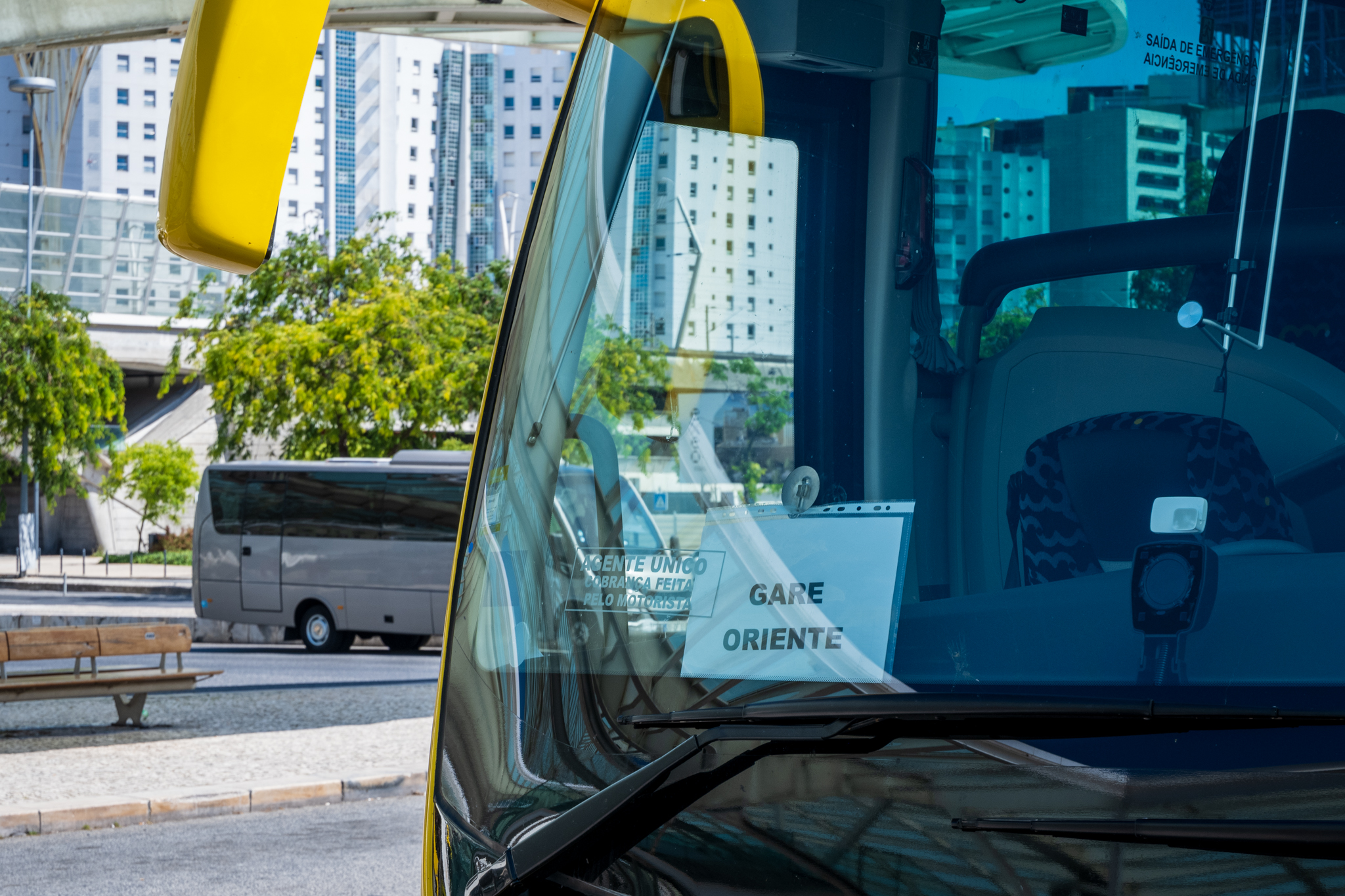
The City Councils of Alcochete, Montijo and Setúbal had been putting pressure on TML in the last few days, due to the complaints they were receiving from their citizens. As soon as June 1stthe Alcochete municipality denounced "various problems related to the timetables, the insufficient supply in relation to the number of users and the inexistence of postcards identifying the lines at the stops". and demanded TML "a quick and effective resolution". The municipality of Setubal wrote on the 6th in his Facebook which "called on TML to convey to the operator of the service, Alsa Todi"the concerns of CM passengers and the "the need to develop the indispensable efforts to quickly normalize the operation of public road transport in the county".
On June 6, there were previous meetings between the various municipalities, the AML and TML. On the following day, there was a new meeting, involving Alsa Todi. On June 7th, the Alcochete City Hall announced which already as of this Thursday, the 9th, buses between Alcochete and Lisbon are being reinforced in the early morning hours and in the late afternoon to cope with the demand. It was also agreed that the TST schedules will continue to be practiced by Alsa Todi until the end of the month (and not for only 15 days) and that, also until the end of June, the placement of information at stops and compliance with schedules will be regularized.
In the same Observador piece already mentioned, Alsa Todi's operations director, Sérgio Adegas, guaranteed that, with TST's schedules and routes being followed temporarily, the situation has been normalized. "After talking to the workers, we agreed to maintain the level of service that was there before. And we will gradually train people. Then we will gradually introduce the new Metropolitan Carris careers."he explained. In other words, June will be a month of transition: it starts now with the previous operator's service and little by little the new lines and schedules will be added. "We are gradually introducing the new services and taking over the normal service of the Metropolitan Carris. The offer is getting closer and closer to what we have contracted with TML."
When Carris Metropolitana is fully operational in Area 4, there will be 153 bus linesThis will translate into about 365 routes, with approximately 745 thousand circulations per year - an increase of 55% in supply in vehicles/km and 60% in circulations. There will be 62 new lines, but the vast majority of the lines are old and will simply be reinforced with more buses circulating and more timetables.
Motorists in protest
Last Monday, June 6, when TML released the statement, something unexpected happened in the Setúbal region: CM's drivers decided not to run the service because they were unaware of the new operator's routes and timetables. Around 90% of CM's urban and interurban buses scheduled for that day did not run, revealed FECTRANS - the Transport and Communications Trade Union Federation.
"Many workers did not start the service, they did a spontaneous stoppage and determined that either they would be given sufficient training and knowledge to perform their duties, or they would put someone on the vehicles who would teach them the way. Since none of this happened, they will continue to stand down for the whole day."explained Fernando Fidalgo, from FECTRANS, to Lusa news agency. Alsa Todi's biggest problem will have been the lack of time to train the drivers for the CM, since the workers were previously employed by TST.
A similar situation also occurred on Monday at Broega, in Montijo. The drivers, "spontaneously, they didn't pick up the service because there will have been an operational problem and these drivers didn't know what service they were going to do, and most of them didn't know the routes of the services"Manuel Oliveira, from the Motorists and Other Workers Union, told Lusa. "Allegedly, TML was late in sending services, in this particular case to the company Alsa, which caused tremendous disruption"he explained.
On the other hand, there were reports that the service sheets (where all the information about, for example, the service that the worker is going to do during the day is located) given to the drivers were in Spanish. Sérgio Adegas, from Alsa Todi, explained to Observer that it was an error in the printing of the documents. "Instead of selecting the Portuguese print, we selected the Spanish option"he explained, adding that the situation is already "completely outdated".
The Metropolitan Carris started operating on June 1st in Alcochete, Moita, Montijo, Palmela and Setúbal, in a first step to standardize the passenger road transport in the 18 AML municipalities. Buses in these municipalities have since the beginning of the month had new route numbering, new timetables, a reduction from 902 types of tickets to just three, new design on passes and ticketing, and some, albeit few, changes to the location of stops. In total, four Operation Areas were created, two involving municipalities on the North Bank of the Tagus and two on the South Bank.
On July 1st, Carris Metropolitana will reach Amadora, Oeiras, Sintra, Loures, Mafra, Odivelas, Vila Franca de Xira, Almada, Seixal and Sesimbra; the new yellow buses will also make trips to Cascais, Barreiro, and Lisbon, but these three municipalities will keep their own operators, so the CM offer will only be inter-municipal.








